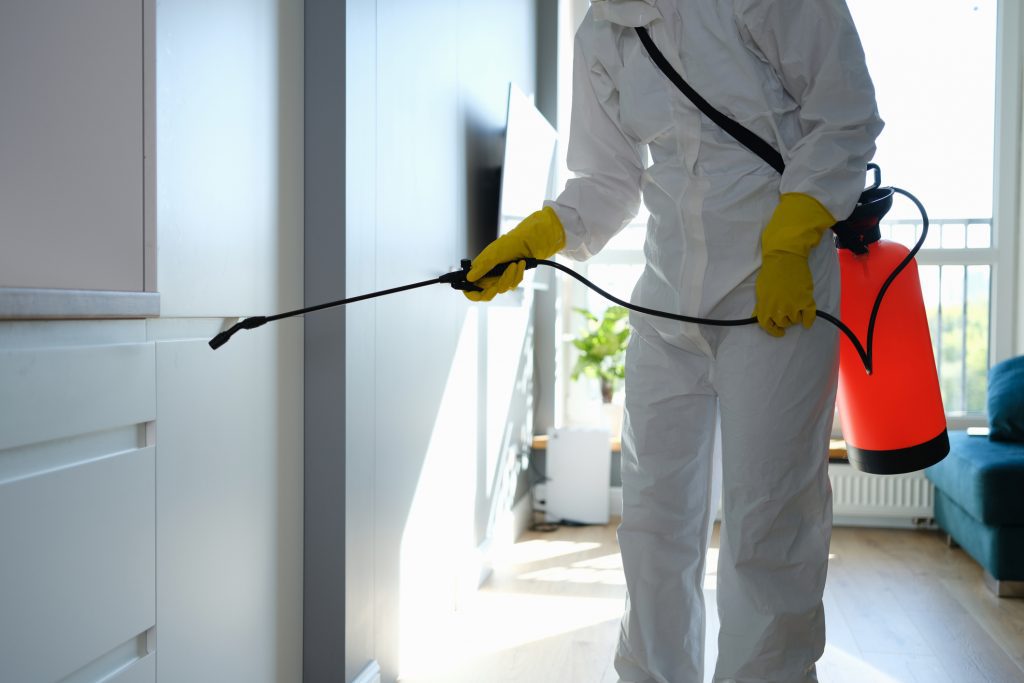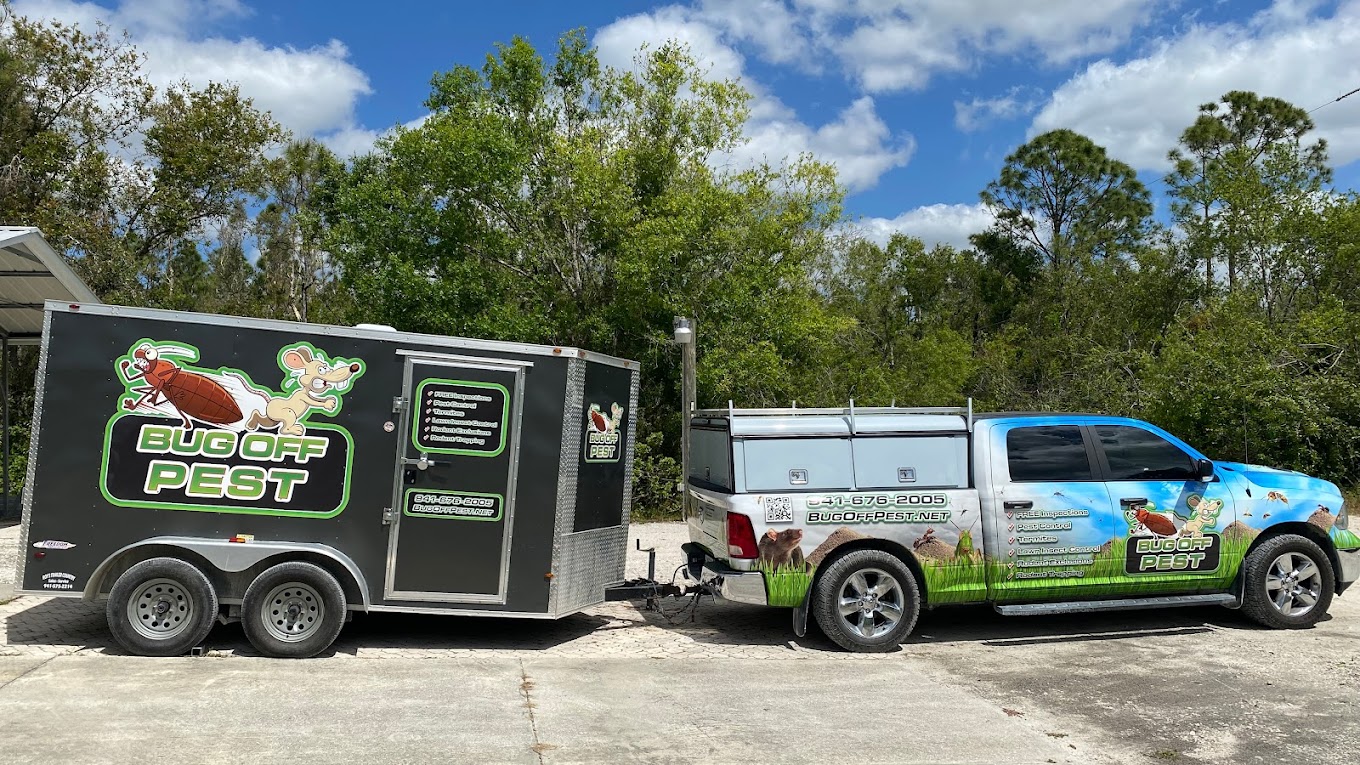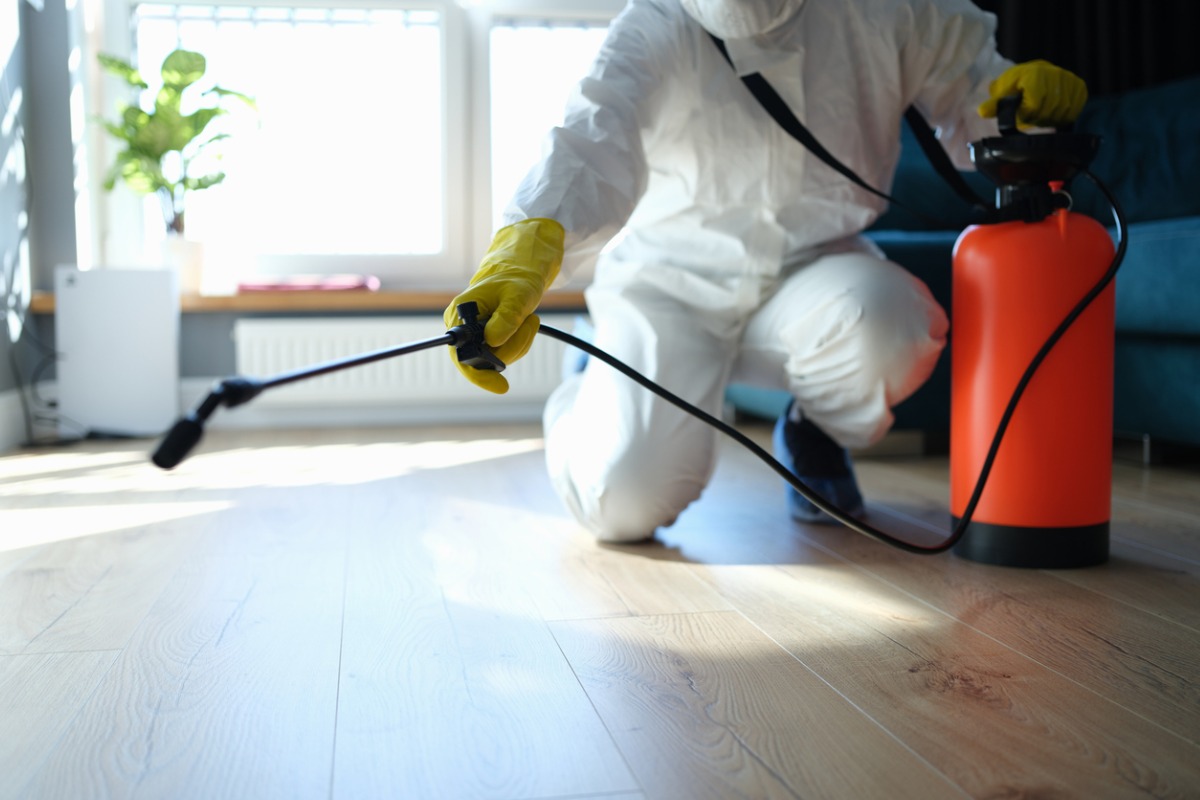Pest Control in Port Charlotte services for home and business properties.
Discovering Ingenious Methods and Products for Reliable Parasite Control
The landscape of pest control is evolving, noted by the introduction of cutting-edge methods and items created to improve effectiveness and sustainability. From wise traps geared up with advanced monitoring systems to organic approaches that use natural predators, these improvements provide a standard shift in how we approach pest monitoring.
Smart Traps and Monitoring Equipments
Exactly how can modern-day innovation enhance pest monitoring? One substantial improvement is the development of clever catches and keeping an eye on systems, which offer real-time data and analytics for reliable insect control. These systems utilize sensing units and wireless technology to detect parasite activity, alerting home supervisors and insect control specialists to infestations prior to they escalate.
Smart catches are furnished with features such as lure stations that bring in insects and record them effectively. These catches can be checked from another location, allowing for prompt interventions and lessening the need for considerable chemical applications. The integration of equipment understanding formulas makes it possible for these systems to differentiate between target insects and non-target species, boosting the accuracy of pest control measures.
In addition, the information collected from smart traps can be evaluated to determine patterns in insect habits and environmental aspects adding to invasions (Pest Control in Port Charlotte). This info is important for developing targeted pest management strategies customized to particular atmospheres. By accepting smart traps and checking systems, bug control specialists can improve their operational efficiency and reduce the ecological impact of parasite monitoring, inevitably bring about more secure and a lot more lasting methods in the market
Organic Insect Control Techniques
Using all-natural killers and bloodsuckers, biological parasite control methods provide an environmentally pleasant choice to chemical therapies. This technique includes the introduction or enhancement of details microorganisms that can normally manage parasite populaces, consequently lowering reliance on synthetic pesticides. Usual instances consist of using ladybugs to regulate aphid problems and parasitic wasps to target caterpillars.

Organic control can be categorized into three primary approaches: classical, augmentative, and preservation. Classical organic control includes importing natural enemies from the pest's indigenous habitat, while augmentative control entails increasing the population of existing natural opponents through launches. Preservation strategies concentrate on creating problems that sustain these helpful organisms in the ecological community.
The efficiency of organic pest control pivots on recognizing the complex communications within communities. It commonly requires a detailed analysis of pest dynamics and the life process of both the insects and their natural opponents. While organic approaches may not offer prompt outcomes like chemical options, they contribute to long-lasting parasite management and community health and wellness. As recognition of environmental issues grows, organic pest control techniques are significantly identified for helpful hints their lasting role in incorporated bug management programs.
Eco-Friendly Chemical Alternatives
Eco-friendly chemical options give a viable option for bug monitoring that decreases ecological impact while efficiently managing parasite populaces. These choices are stemmed from natural resources and are very carefully developed to target Learn More certain bugs without hurting helpful organisms, making them a necessary element of sustainable pest control strategies.
Among the most efficient environmentally friendly alternatives are plant-based insecticides, such as neem oil and pyrethrin, which are stemmed from the seeds and blossoms of different plants. These compounds interrupt the life process of parasites, decreasing their populaces without the harmful effects associated with standard pesticides - Pest Control in Port Charlotte. Furthermore, necessary oils like pepper mint and clove oil exhibit repellent residential or commercial properties, additionally improving their energy in insect management

Moreover, environment-friendly chemical alternatives typically damage down much more swiftly in the setting, decreasing the danger of dirt and water contamination. This particular aligns with the increasing consumer need for lasting practices in agriculture and metropolitan pest control. As research study proceeds to advancement, the growth of innovative green formulas will additionally boost effectiveness and expand application locations, enabling pest administration specialists to take on greener, much more accountable approaches in their practices while guarding human health and the environment.
Pheromone Interruption Strategies
An additional innovative approach in sustainable insect monitoring is the usage of scent disruption techniques. These methods exploit the all-natural chemical signals, or scents, that insects use for communication, specifically in breeding actions. By interfering with these signals, parasite populaces can be effectively taken care of without considering harmful chemicals.
Pheromone traps are typically utilized in this method. These catches utilize artificial variations of insect scents to lure male insects, thereby reducing their capacity to situate women and reproduce. With time, this can cause a substantial decline in pest populaces. Furthermore, the launch of repellent pheromones can develop confusion among bugs, even more inhibiting their breeding processes - Pest Control in Port Charlotte.

Integrated Bug Monitoring Techniques
Reliable insect control usually requires a comprehensive technique, and Integrated Pest Administration (IPM) strategies supply a framework for accomplishing this goal. IPM incorporates various monitoring methods to decrease pest populations while minimizing dependence on chemical pesticides. This multifaceted technique starts with detailed monitoring and identification of insects, enabling targeted treatments based upon specific insect stress.
Cultural methods, such as plant rotation and hygiene, play a crucial duty in avoiding parasite establishment. Biological controls, consisting this of all-natural killers and parasitoids, are used to keep parasite populaces at convenient degrees. When essential, discerning chemical therapies are used, stressing reduced poisoning to non-target types and the atmosphere.
By using this all natural technique, IPM not only boosts bug control efficiency yet likewise adds to lasting environmental balance. Inevitably, Integrated Insect Management stands for a forward-thinking service that aligns agricultural productivity with ecological stewardship, making it vital in contemporary bug control techniques.

Conclusion
In conclusion, the assimilation of ingenious strategies and products for reliable parasite control represents a substantial improvement in lasting insect administration. Smart catches and checking systems, organic parasite control methods, environmentally friendly chemical options, and pheromone interruption methods jointly improve the efficiency of bug monitoring approaches.